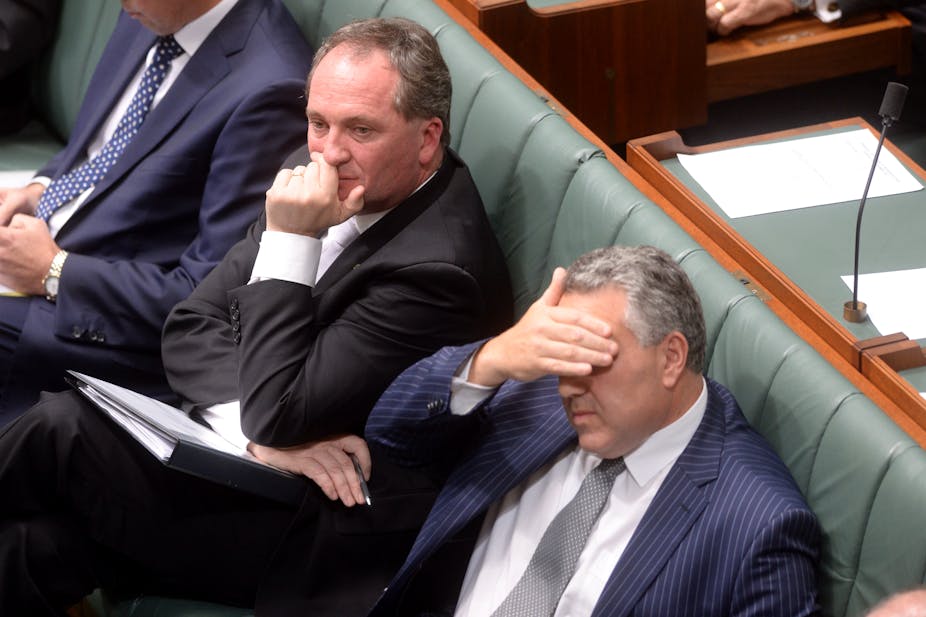When Federal Treasurer Joe Hockey quashed the acquisition of GrainCorp by Archer Daniels Midland on national interest grounds, his stated reasons were based on competition.
Despite it being five years since the single desk for wheat exports was abolished, according to the treasurer “it is still taking some time for increased competition to emerge”. In particular, GrainCorp controls essential bottleneck infrastructure. It owns seven of the ten grain port terminals in New South Wales, Victoria and Queensland, and the government says approximately 85% of eastern Australia’s bulk grain exports are handled through GrainCorp’s ports network.
From an economic perspective, it doesn’t really matter if dominant firms are listed on Australia’s sharemarket or, as part of ADM, on the New York stock exchange. However, the treasurer argued having ADM acquire GrainCorp would undermine public support for foreign investment. So he prohibited the acquisition.
So now what?
Unfortunately the treasurer did not answer the two follow-up questions. If there is a competition problem in Australia’s grain trading, where did it come from? And what (if anything) is the government going to do about it?
The competition problem is historic. GrainCorp started life in 1916 as the NSW government-owned Grain Elevators Board. It was privatised as GrainCorp in 1992. But competition for grain exports wasn’t an issue. The single desk of the Australian Wheat Board (AWB) had a legal monopoly over much of Australia’s grain exports, with GrainCorp handling the grain and carrying out some domestic trading from 1996. GrainCorp expanded, buying facilities in Victoria and Queensland. But again, there was no competition problem because competition was largely illegal.
Then in the mid-2000s, the oil-for-wheat scandal erupted. Support for AWB’s single desk collapsed and in 2008 the monopoly power of AWB was removed. By 2011, AWB had been acquired by the Canadian firm Agrium and become Agrium Asia Pacific Limited. But removing the AWB monopoly simply left GrainCorp in the box seat, controlling the grain ports. The death of the single desk heralded a new dominant firm and a competitive headache.
Policy makers moved quickly to deal with this headache through “access undertakings” for the ports.
Grain traders can only export grain if they can access the ports. But this may be difficult if most of the ports are owned by their competitor, GrainCorp. And, in the absence of government action, GrainCorp would have little incentive to allow competitive access. Keeping competitors out of its ports would help GrainCorp to reduce payments to farmers and maximise profits.
As a result, wheat export deregulation was accompanied by port access regulation. Port terminal operators such as GrainCorp are required to have an access undertaking approved by the Australian Competition and Consumer Commission (ACCC). GrainCorp’s first undertaking was accepted by the ACCC in 2009 with a new undertaking accepted in 2011.
Access undertakings should prevent GrainCorp from abusing its control of the ports. While enforcing “fair and reasonable” access can be difficult, GrainCorp’s access undertakings are relatively uncontroversial.
There appear to have been few if any disputes, in sharp contrast to other industries with regulated access regimes, such as telecommunications. Indeed, GrainCorp has altered the undertakings - with ACCC approval – in the last two years to improve grain trader competition.
So while having GrainCorp as a dominant player in grain export terminals is a long way from a competitive industry structure, it appears that appropriate regulatory tools have been put in place and are working.
If the treasurer believes there are unsolved competition issues in grain exports, then he doesn’t have many choices.
Limited options
One alternative would be to break up GrainCorp, separating the ports from the grain trading activities. There is precedent for such action overseas, most notably with the break-up of AT&T in the United States in the 1980s. But it would require legislation and, in the absence of strong anti-competitive conduct by GrainCorp, would be politically unpalatable.
Alternatively, the government could renationalise GrainCorp, break it up, then resell the pieces.
This would be expensive, as the resale price on the bits would be less than the price the government would have to pay for GrainCorp today. A dominant firm is worth more to investors than a number of competitive alternatives.
A re-nationalisation may appeal to the National party, but the agrarian-socialist collective that forms part of the federal government would probably not want re-privatisation. And a government-owned port monopolist is probably worse for competition than a well-regulated GrainCorp.
Finally, the treasurer could do nothing. And, from his statement, this appears to be his chosen alternative. He will wait and hope for competition to emerge. Unfortunately, this option raises other questions.
First, the port access regime is to be replaced by a mandatory industry Code of Conduct next year. Will this move to “light handed” regulation continue if there is such a competitive problem in our grain ports?
Second, given that the current port access regime appears to be working, is competition really the reason behind the treasurer blocking ADM? Or did he cave into National party pressure? And if so, what does this mean for the future of the recently elected Abbott government?

